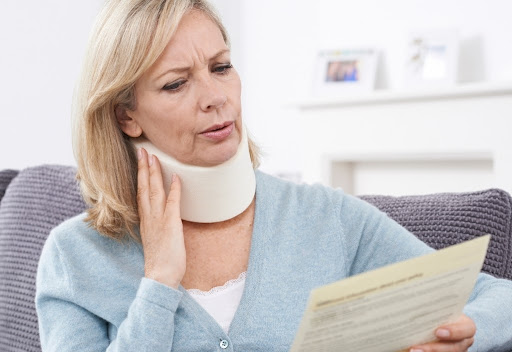If a business ends up injuring you in any way, there’s a good chance that you can recover damages from it. This is especially true if the business acted negligently to cause your injury. In some circumstances, however, the question of whether the business acted negligently is entirely irrelevant. If a product manufactured or sold by the business injured you, you may have a claim for damages even if the business was not negligent.
When Can I Hold a Business Liable For My Injury?
If a business acts negligently, or negligently fails to act in a way that prevents you from injuring yourself, they are liable for your injuries. The basic requirements to sue a business for injury over a negligence claim are the same as any other negligence related personal injury action. To successfully hold a business (or anyone else) liable for a negligence related injury, you need to establish four things in court:
- The business owed you a duty of care;
- The business breached that duty of care;
- You suffered an injury that led to real damages; and
- There is a demonstrable, direct causal link between the damages you suffered and the breach of the duty of care.
If you can demonstrate these four requirements in court, your injury claim against a business has a considerable chance of success.
How the Negligence Requirements Work in Practice
Knowing the four negligence requirements in a vacuum really doesn’t help you assess whether you have a valid claim. To help you better understand these requirements, let’s go over them individually. This can help you assess the strength of your claim. However, the best way to know if you have a claim is to consult with an injury lawyer.
A Duty of Care and a Breach of That Duty
At a basic level, a duty of care is an obligation that one party owes to another. The general obligation is to use a reasonable “standard of care” to avoid any unnecessary physical or psychological damage to others. Any business that allows customers or other potential clients to freely move about their property owes their customers (and workers) a duty of care to maintain safe and secure premises. This is not the only duty of care a business owes to a customer. Instead, it is a common duty of care that we see businesses breach on a regular basis.
Consider a situation that might arise if a company fails to fix a faulty electrical outlet. Now, let’s also assume that they also fail to block off and/or otherwise warn others to stay away from the outlet. They could easily find themselves liable for damages if that outlet electrocutes and injures someone else. The claim in this situation is what is known as a “premises liability” claim. Such a claim can arise any time a property owner fails to take reasonable measures to maintain safe premises.
Real Damages
To hold a business liable for personal injury damages, you need to suffer them. You may think that any injury should give rise to damages, but this is not always the case. If you fall down somewhere, bruise your wrist, and go about your life without seeking any medical care for yourself, you will have a hard time showing that you suffered real damages. Certainly you were in pain, but if you don’t get a medical evaluation there is no way to prove it.
Conversely, if you slipped and fell, then went to the doctor’s office for an x-ray, you would have real damages to show in your medical bills. Similarly, if you slipped and fell and were traumatized by the experience, you could seek medical care for psychological damage. The mental health professional’s bills and notes would help you establish real damages. In sum, to show real damages, you need to bring something tangible to the table. After all, without showing real damages, there is nothing that the business can really compensate you for.
The Causal Link
Finally, you need to establish a direct causal link between the breach of duty of care and the subsequent injury and damages. This may, at first glance, appear obvious. However obvious it may seem, it is a critical element. After all, we can’t really hold a business liable for something that they didn’t do. Often, the causal link between the facts of the case and your injuries is apparent just by looking at your injuries and related doctor’s notes. If you slipped on a wet floor, fell, and broke your arm, showing the causal link will likely be simple.
Conversely, something like the causation of psychological damage is often a little less obvious. Businesses don’t want to find themselves paying for someone’s mental health bills if they weren’t the cause of psychological duress. As a result, they are more likely to push back on allegations of psychological damage. Again, however, just like with any other doctor, a mental health practitioner’s notes and testimony can help establish and prove that causal link.
What If a Defective Product Injures Me?
You can also hold a business liable for personal injuries that arise from defective products. Unlike other injuries caused by businesses, however, you don’t need to establish negligence to hold a company liable for defective products. Instead, product manufacturers are automatically held liable for any damage that their defective product causes, so long as the product was used as intended. In law, this is a case of what we refer to as “strict liability.”
Contact Us Today!
If you need to file a personal injury claim against a business, there are no two ways about it: you need an attorney on your side. Regardless of where you stand with your claim, the injury attorneys at Brett McCandlis Brown & Conner PLLC can help you get the compensation that you deserve. Every day, we help our clients throughout the state of Washington recover the compensation they are due.
We take care of all the fine details that go into your claim so that you don’t have to. In doing so, we ensure that you can focus on recovering from your injuries and, most importantly, move on with your life. Our consultations are always free, and you will never have to pay us up front, so you can rest assured that we are doing everything in our power to get you the compensation you need. In other words, we only get paid when you do. This makes our legal representation risk free. Don’t wait to assert your rights and get the compensation you deserve. Contact us today for your free consultation!


